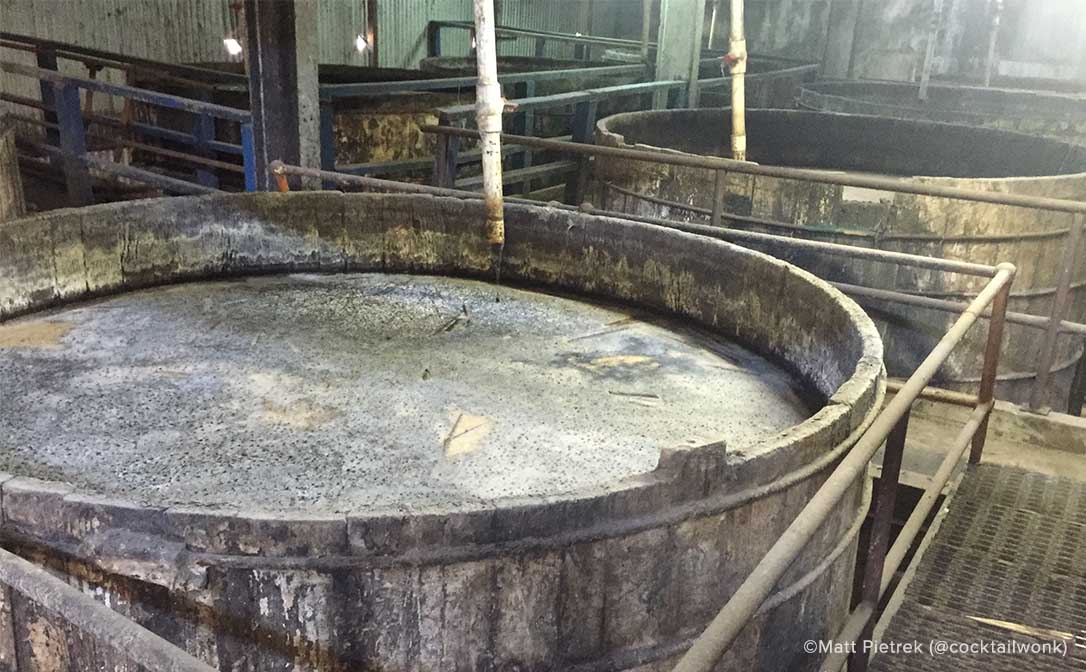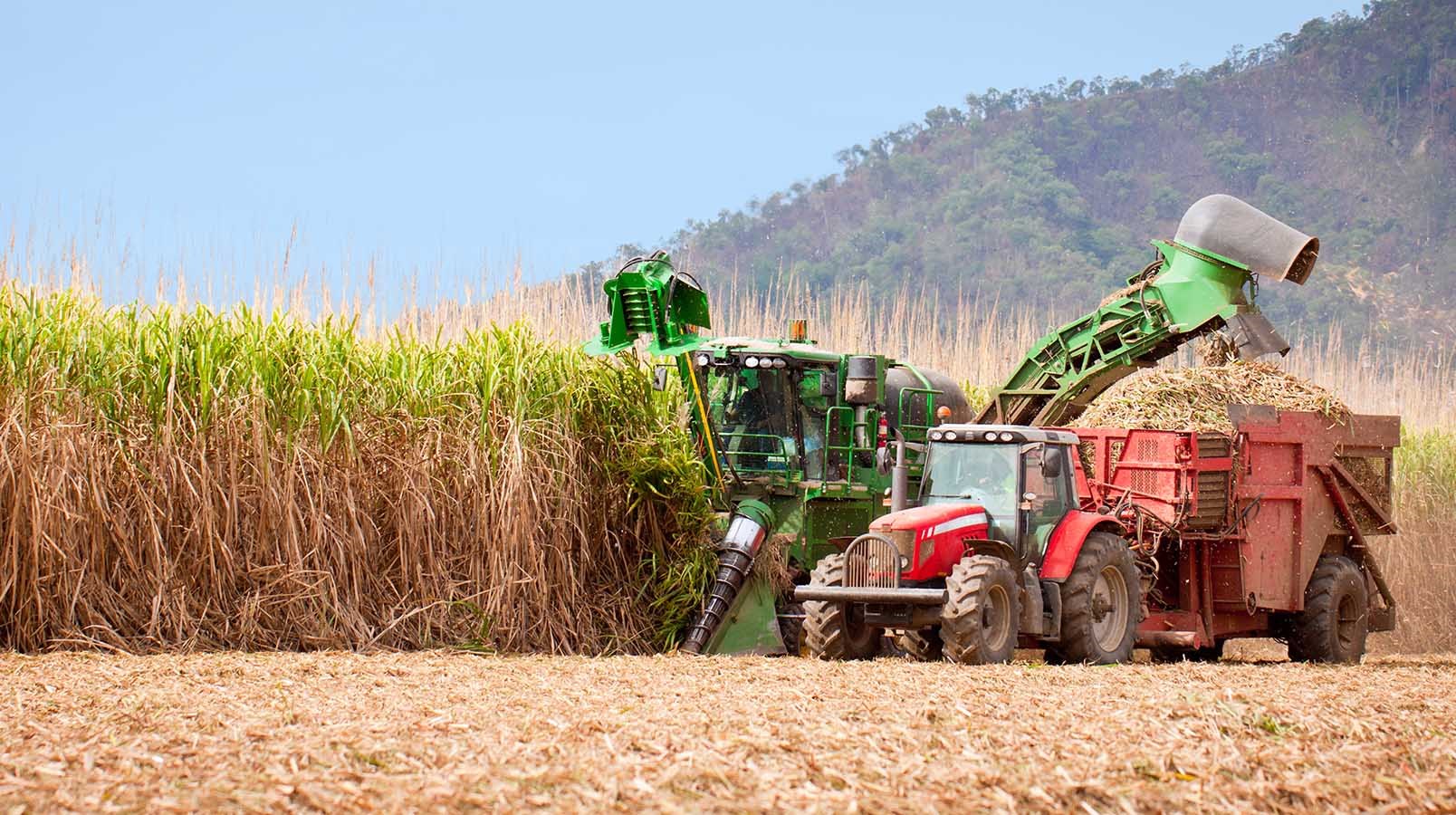Funk… funny word isn’t it?
It’s unmistakably muscular in how it rolls off the tongue and yet it’s extraordinarily flexible, with so many different meanings depending on the context. Ask Bruno Mars what funk means to him, and he’ll undoubtedly direct you Uptown for some uplifting Saturday night beats.
But ask any office worker trapped in the depths of the Hump Day doldrums and you may very well find them feeling in a low-energy funk of an entirely different persuasion.
However, if you ask any rum lover about funk and they will without exception direct you towards Jamaica. Indeed, funk has become such a byword for Jamaican rum that we sometime lose track of just what it means…
In rum, funk refers to an array of distinctive aromas produced by organic compounds known as esters. These aromas can vary from ripe tropical fruit notes (banana, mango, and pineapple are typical notes associated with Jamaican rums), to notes of over-ripeness moving into decay. Doesn’t sound exactly like your cup of tea? Well, you see it’s the not just the individual aromas, but the layered aromatic complexity of this that is so sought-after, and almost impossible to replicate. Interestingly, funk is also known locally in Jamaica as ‘hogo’, thought to derive from the French term haut-gout, which translates to English as ‘high-taste’!

An open-topped wooden fermenting vessel in Jamaica that is used for long fermentations, a film of microbial growth can be seen on the top of the liquid. "Distilleries that rely heavily on ambient yeast and bacteria often have an unkept look; this is deliberate and allows the unique cultures to thrive in the fabric of the distillery.” Understanding spirits: Explaining style and quality. Image credit: Matt Pietrek (@cocktailwonk).
Now, before we go too much further, it is worth pointing out that there are many fine rums that come from the island of Jamaica that are not terribly funky, but can be quite excellent, nonetheless. And there are some excellent funky rums that do not originate from Jamaica, notably some Agricole Rhums of Martinique & Clairin from Haiti. But for the purposes of this piece we will touch on the distilleries and techniques involved when making some iconic funky Jamaican rums.
When talking of Caribbean rums in general, another word that you are likely to hear is mark (sometimes spelled ‘marque’). This refers to an individual newly made spirit. The Master Blender will often marry several different marks from various different stills in order to achieve a particular style. In creating this layered style, the Blender may distil or buy in several marks that have been made in different styles each with a particular character, be that light, heavy, fruity, floral, earthy, etc.
Funk has become such a byword for Jamaican rum that we sometimes lose track of just what it means…
If, for instance, the blender wished to create a very high-ester mark, they may avail of certain techniques that would lend themselves to this style. These may include some traditional methods such as long fermentation periods, which would encourage the development of complex fruit notes, along with the use of Dunder, an acidic by-product of distillation used to control the fermentation style and the uniquely Jamaican technique of Muck Pits, which are a way of fostering microbial cultures in the fermentation process that are distinctive to each distillery. Then this high-ester mark will typically be blended with various other marks to create a delicious Jamaican rum.
If this all sounds very technical and scientific, worry not. Below are some examples of typical Jamaican rums that can be enjoyed both analytically and in the company of good friends.
Overproof Jamaican rum
This is the stuff that most Jamaicans drink. But be careful; when you see names such as Wray & Nephew Overproof, Worthy Park Rum-Bar, or Hampden Estate Rum Fire, it’s useful to know that they are bottled at 63%abv (126 % Proof), and are not to be messed with!
This style of rum is typically unaged, with a bright fresh character, pronounced notes of tropical fruit and spice, and a very complex finish. Mostly enjoyed by Jamaicans with Coke, Overproof rum is also a key ingredient in many classic cocktails.
Aged Jamaican rums
These rums will be blends of several different marks and different casks, some coming from different distilleries. These can vary from the delicious and easily accessible releases from Appleton Estate, to the super funky, high-hogo style of Smith & Cross.
Specialist independent bottlers such as Plantation, Mezan and Boutique-y source specific styles originating from different distilleries to create their own releases. These can be the produce of a single distillery, a single island, or a blend of rums from several islands. The variety in this category is endless.
Single Distillery Bottlings
Once the preserve of the connoisseur, this is a fantastic way to get to know the distinctive styles produced by each Jamaican distillery, with some single barrel or single mark rums also available in speciality releases. Names to look out for include Long Pond, Clarendon, Monymusk, Hampden Estate & Worthy Park. Some bottlings will not feature the name of the distillery, but Jamaican rum aficionados swear they can tell them apart with ease!
If this has inspired you to learn more, through our Level 2 Award in Spirits you'll discover how different production methods and raw materials are used to make the key spirit styles. With our more advanced Level 3 Award in Spirits you'll gain a comprehensive understanding of why spirits look and taste the way they do.
Written by Charlie McCarthy Business Development Manager - Spirits (EMEA)


